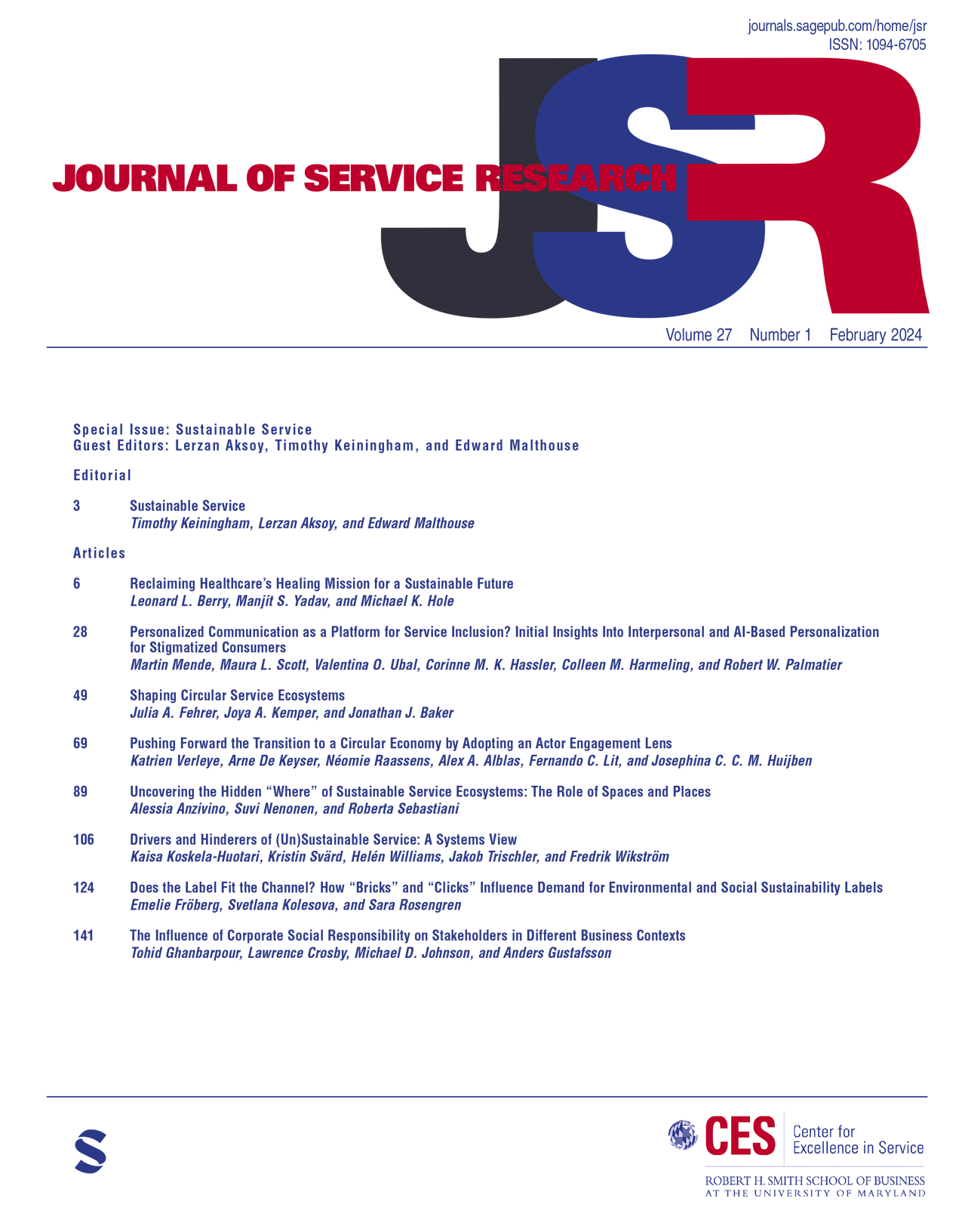Dying to Understand How Electronic Word of Mouth Legitimates Sustainable Innovations in Stigmatized Markets
IF 8.6
2区 管理学
Q1 BUSINESS
引用次数: 0
Abstract
Entrepreneurs entering stigmatized markets face barriers to entry beyond those encountered in traditional markets. Yet, little research examines factors influencing the diffusion of these goods and services. Through the lens of institutional theory, this paper proposes and demonstrates the application of a conceptual model outlining the process by which stigmatized innovations become (de-)institutionalized. We combine mixed methods by blending qualitative with quantitative tools to analyze the legitimating influence of electronic word-of-mouth (eWOM) over time. Our findings suggest that dichotomized consumer preferences stem from normative (natural and benevolent versus artificial and malevolent), cultural-cognitive (ecological health and sustainable services versus public health and traditional services), and regulatory (government rule versus market rule) binaries that influence the deinstitutionalization of orthodoxy (utopian versus dystopian worldviews). Notwithstanding, we show that, in stigmatized markets, consumers look to eWOM to inform their choices, which can aid in deinstitutionalizing rational myths and help perpetuate service innovation. We also find that in stigmatized markets, the existing industry does not show a predictable response to societal pressures for service innovations that promote social wellbeing and sustainability.渴望了解电子口碑如何使污名化市场中的可持续创新合法化
企业家在进入被污名化的市场时面临着传统市场所没有的障碍。然而,很少有研究探讨影响这些产品和服务传播的因素。本文通过制度理论的视角,提出并展示了一个概念模型的应用,该模型概述了污名化创新(去)制度化的过程。我们采用混合方法,将定性与定量工具相结合,分析电子口碑(eWOM)随着时间推移产生的合法化影响。我们的研究结果表明,二分法的消费者偏好源于规范(自然和仁慈相对于人工和恶意)、文化认知(生态健康和可持续服务相对于公共健康和传统服务)和监管(政府规则相对于市场规则)的二元对立,这些二元对立影响了正统观念(乌托邦式的世界观相对于乌托邦式的世界观)的去制度化。尽管如此,我们还是发现,在被鄙视的市场中,消费者会通过网络口碑来了解自己的选择,这有助于理性神话的去制度化,也有助于服务创新的延续。我们还发现,在被鄙视的市场中,现有行业并没有对社会要求服务创新以促进社会福祉和可持续发展的压力做出可预测的反应。
本文章由计算机程序翻译,如有差异,请以英文原文为准。
求助全文
约1分钟内获得全文
求助全文
来源期刊

Journal of Service Research
BUSINESS-
CiteScore
20.30
自引率
6.50%
发文量
28
期刊介绍:
The Journal of Service Research (JSR) is recognized as the foremost service research journal globally. It is an indispensable resource for staying updated on the latest advancements in service research. With its accessible and applicable approach, JSR equips readers with the essential knowledge and strategies needed to navigate an increasingly service-oriented economy. Brimming with contributions from esteemed service professionals and scholars, JSR presents a wealth of articles that offer invaluable insights from academia and industry alike.
 求助内容:
求助内容: 应助结果提醒方式:
应助结果提醒方式:


